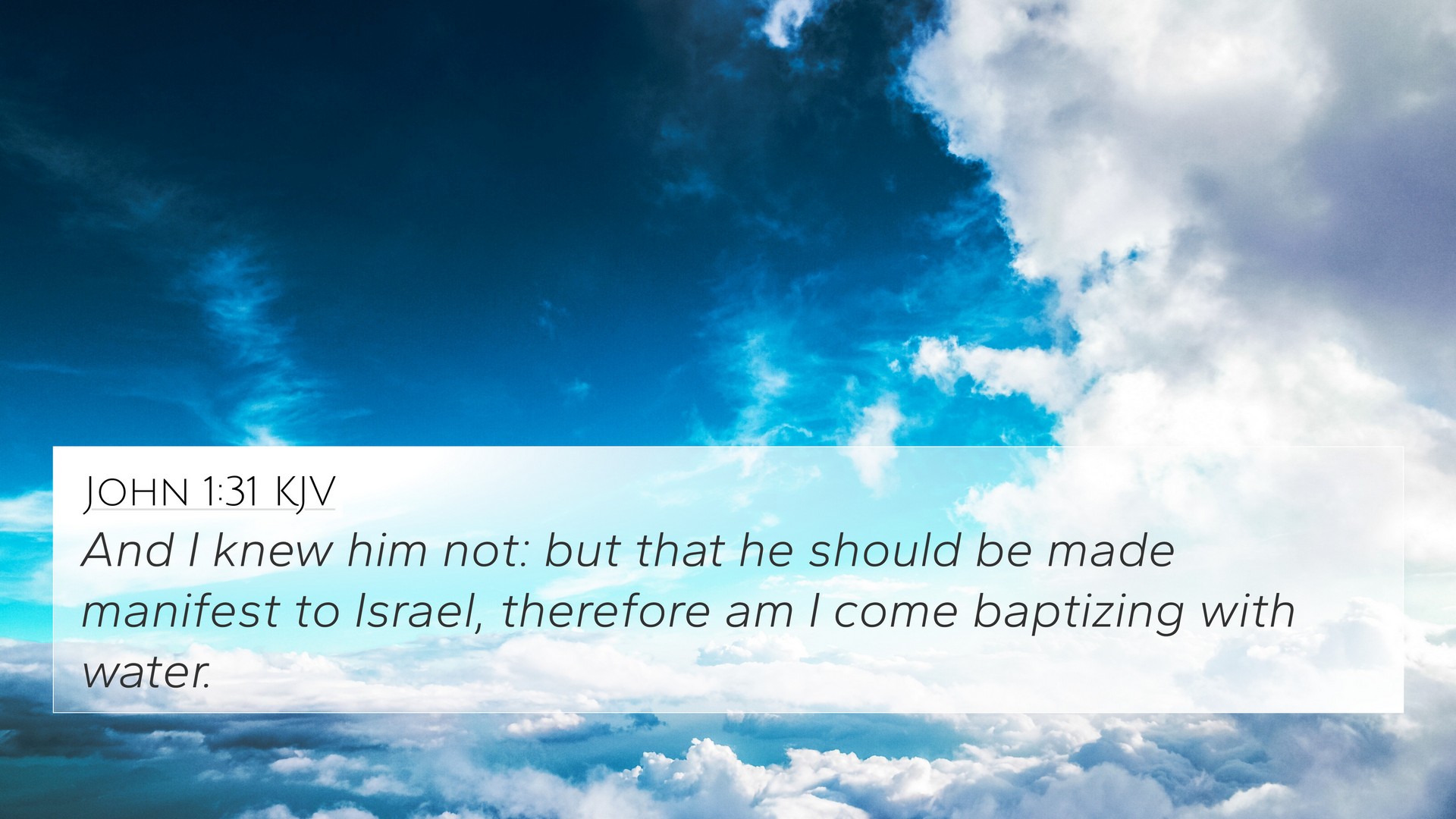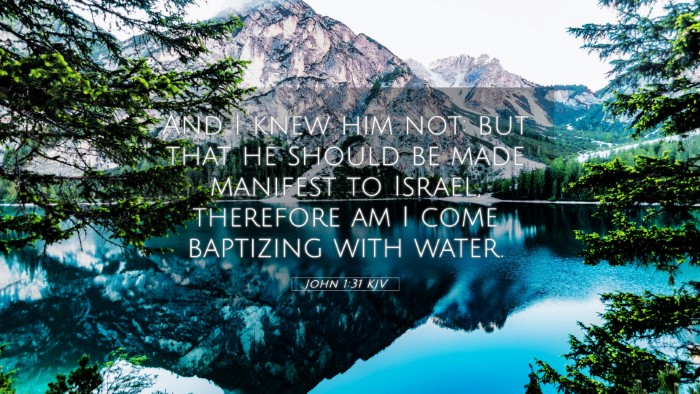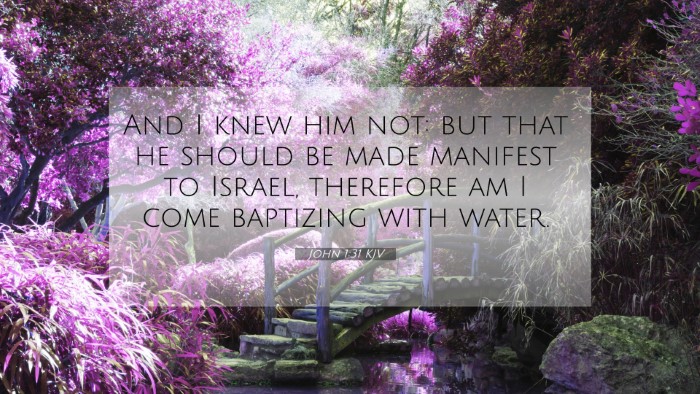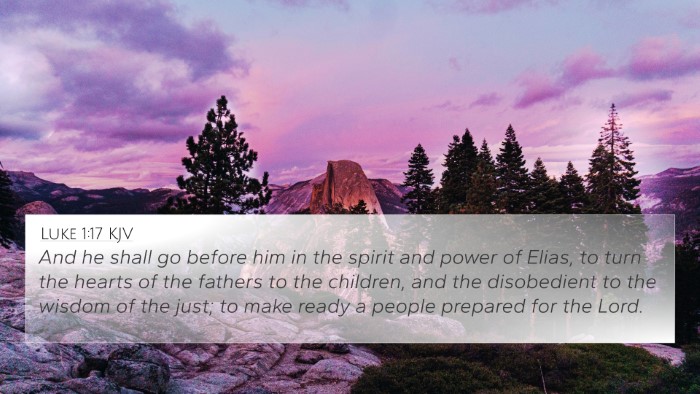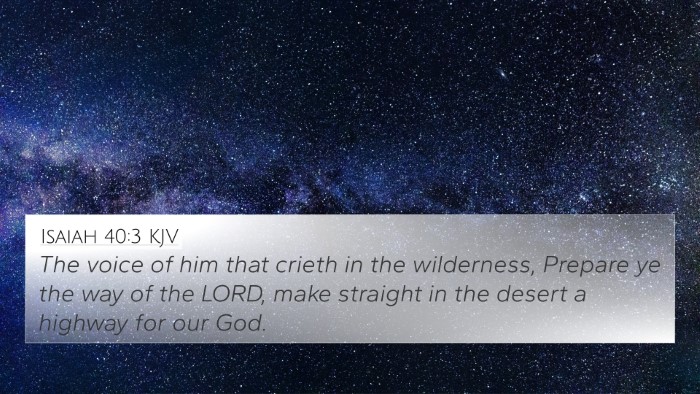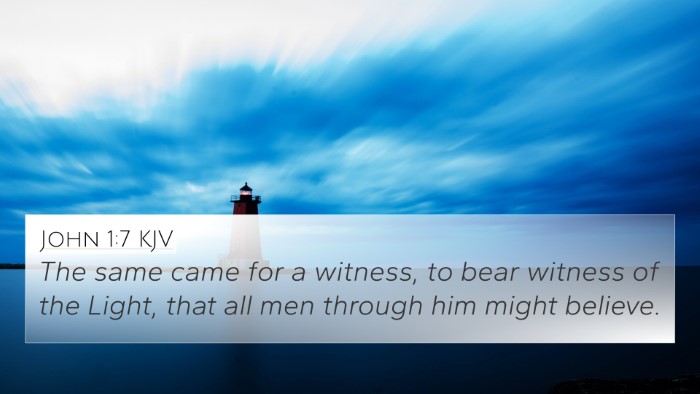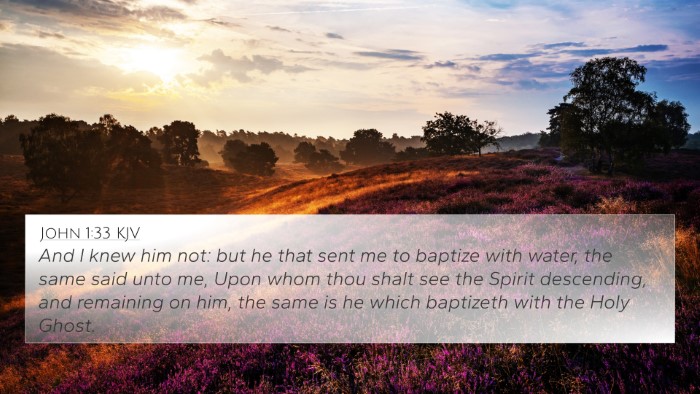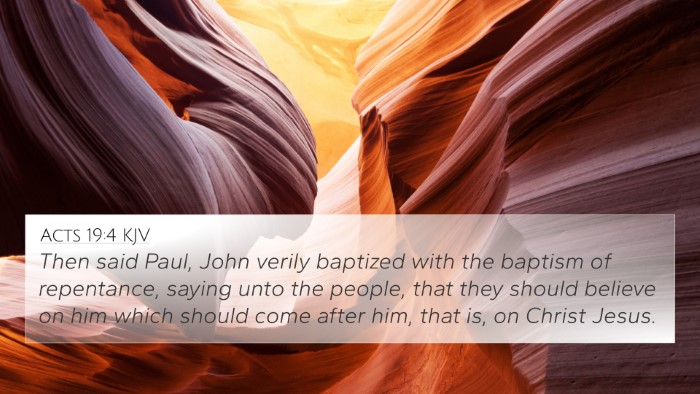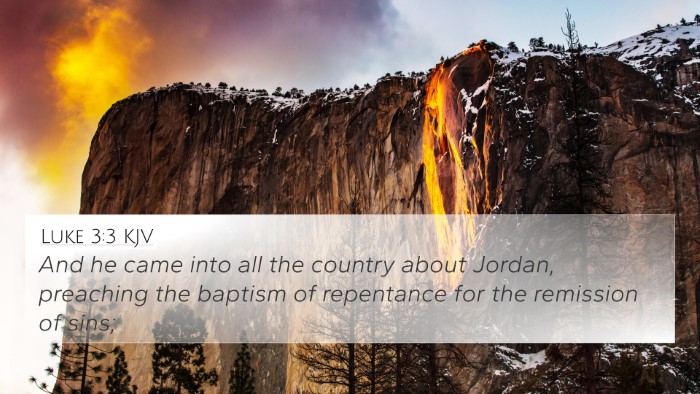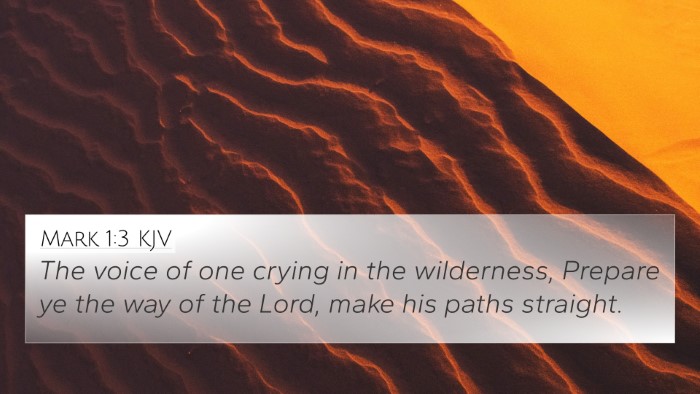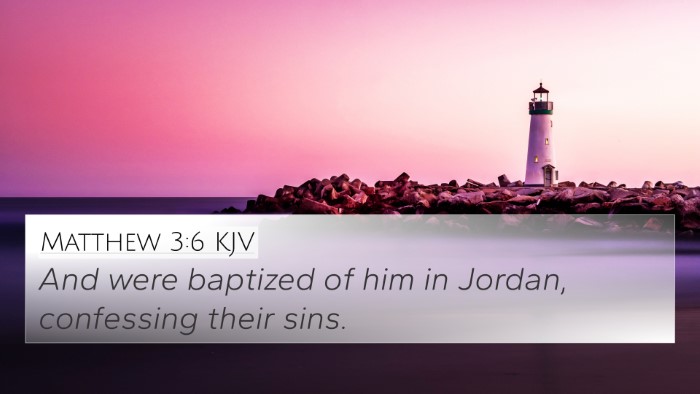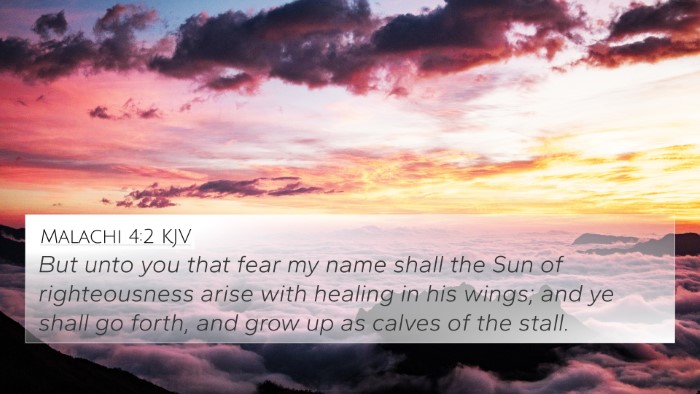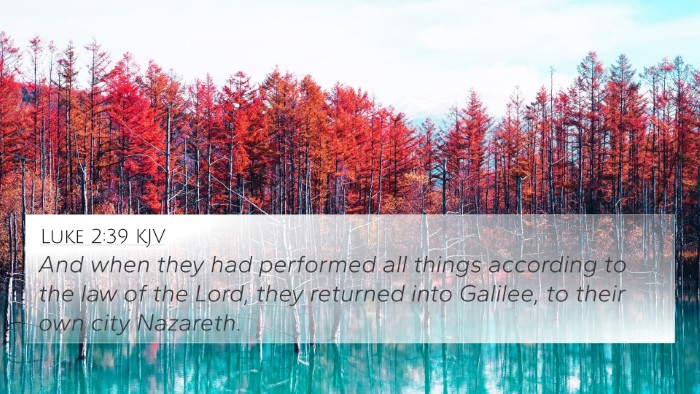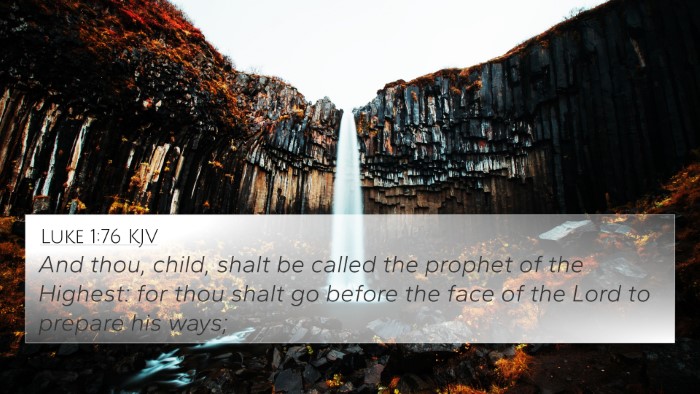Understanding John 1:31
John 1:31 states: "And I knew him not: but that he should be made manifest to Israel, therefore am I come baptizing with water." This verse captures the profound role of John the Baptist and the divine purpose behind his ministry. Below, we combine insights from various public domain commentaries, focusing on the deeper meanings and connections found within this verse.
Commentary Insights
This verse reveals several key themes that resonate throughout the Scriptures, illustrating not only John's mission but also the significance of Jesus Christ in the broader biblical narrative.
- John the Baptist's Role: Matthew Henry highlights that John was divinely chosen to prepare the way for the Lord. His baptism was not just a ritual but a proclamation of the coming Messiah.
- Divine Revelation: Adam Clarke notes that John’s lack of prior knowledge of Jesus emphasizes the supernatural aspect of Christ’s revelation. It underscores that John introduced Jesus to Israel as the awaited Savior.
- Manifestation of Christ: Albert Barnes emphasizes that the manifestation of Christ was crucial for Israel’s understanding of their redemption. John's testimony about Jesus was vital for recognizing Him as the Lamb of God.
- Connection to Old Testament Prophecies: The verse's context ties back to prophecies in the Old Testament, indicating that the coming of Christ was a fulfillment of God's promise to Israel.
Thematic Connections and Cross-References
John 1:31 connects with numerous other verses that enhance our understanding of its message. Cross-referencing biblical texts helps us uncover the intricate web of connections within Scripture.
- Isaiah 40:3: This verse prophesies the voice crying in the wilderness, which points to John the Baptist preparing the way for the Lord.
- Matthew 3:3: Similar to the prophecy in Isaiah, Matthew affirms John's role as the forerunner to Christ, echoing the call to repentance.
- John 1:29: This verse emphasizes John declaring Jesus as the "Lamb of God," showcasing his mission to introduce the Messiah.
- Acts 19:4: It connects to the understanding of John’s baptism and its significance in the early church's proclamation of Jesus as the Savior.
- Luke 1:76: This passage highlights that John was to be called the prophet of the Highest, reinforcing his prophetic role.
- John 3:30: John emphasizes that "He must increase, but I must decrease," reflecting his humility and recognition of Christ's preeminence.
- Matthew 11:11: Jesus speaks of John, establishing his significant role in the kingdom of heaven, thus affirming his importance in God’s plan.
Connections Between Bible Verses
By analyzing the connections between these verses, we can better grasp the overarching themes of preparation, revelation, and fulfillment in the biblical narrative.
Inter-Biblical Dialogue
This verse initiates an inter-Biblical dialogue that spans both the Old and New Testaments. The relationship between John's ministry and prophetic writings illustrates how God’s plans evolve while remaining consistent with earlier revelations.
Engaging with Cross-Reference Tools
For deeper study, utilizing tools for Bible cross-referencing can enhance understanding. Here are some methods to explore cross-referenced themes:
- Bible Concordance: A resource for finding words and themes across scriptures that may relate to John 1:31.
- Bible Cross-Reference Guide: Helpful for identifying similar verses and concepts that connect back to this passage.
- Cross-Reference Bible Study: Techniques to systematically study related verses, enhancing our comprehension of biblical themes.
- Comprehensive Bible Cross-Reference Materials: Resources that compile multiple related verses for study and meditation.
Conclusion
John 1:31 is a pivotal verse that encapsulates John the Baptist's purpose and foreshadows the ministry of Jesus Christ. By utilizing cross-references and thematic connections, believers are invited to explore the rich tapestry of biblical teachings that lead to a deeper understanding of faith. Whether through direct cross-referencing or thematic exploration, the narrative demonstrates God's unwavering commitment to revealing His truth to humanity.
Engaging with these insights and exploring the connections will fortify our spiritual walk and enhance our grasp of how each scripture serves to affirm and deepen the understanding of God’s redemptive story.
